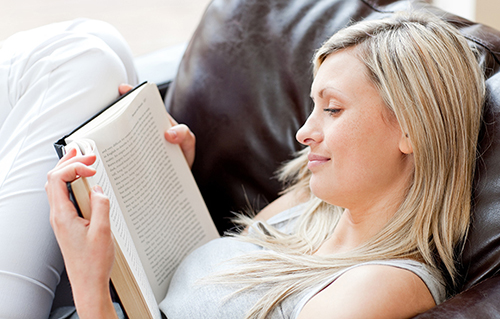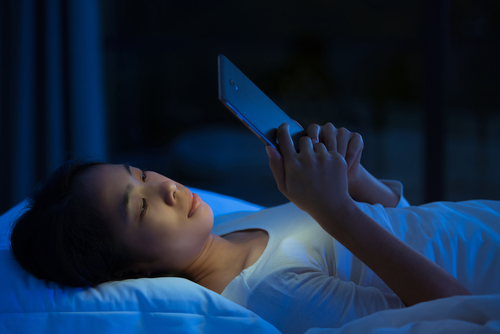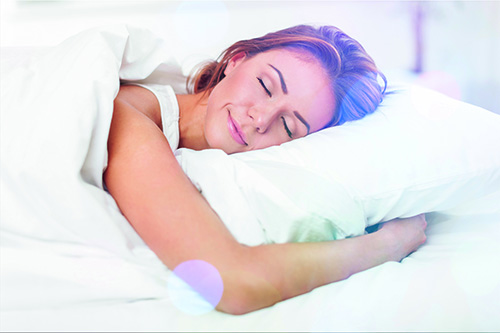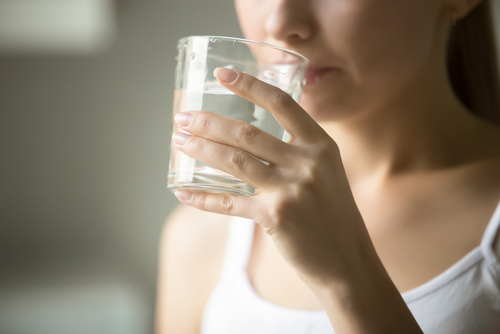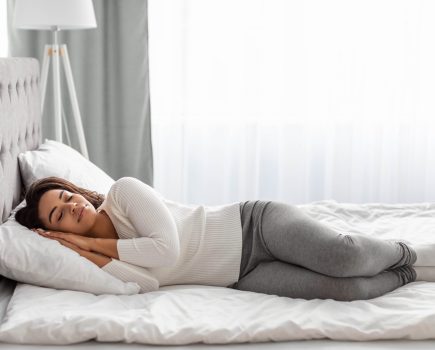Celebrate World Sleep Day With This Comprehensive Sleep Guide
Sleeplessness can have a multitude of effects on our everyday lives, such as disrupting our eating habits, energy and concentration levels, as well as causing mood swings. As much as we want to embrace living in the moment, we still need to ensure we’re getting enough shut-eye to keep our minds and bodies functioning well. Nutritionist Sarah Flower from Power Health shares her top five tips and tricks to make sure you get a good night’s rest.
Switch Off
In order to get a good night’s sleep, our body needs to convert serotonin into melatonin. Melatonin synthesis, which occurs in the pineal gland, happens when the hormone that communicates lighting to the brain is triggered by darkness, helping induce and maintain sleep. As we leave the winter behind, this process is often delayed as lighter evenings and brighter mornings affect the communication of hormones to the brain. Research has shown that exposure to light during sleep can suppress the immune system, as well as disrupt natural sleep patterns. To help avoid this in the home, invest in black out blinds or curtains, or a sleep mask, to create a dark room to switch off in.
Our reliance on modern technology can also impact the quality and duration of sleep. The production of melatonin is also affected by computers, smart phones, and TV screen glare. To ensure our minds switch off properly, avoid using any devices at least one hour before sleep.
Fuel Your Sleep Properly
If you’ve ever gone to sleep on a full stomach, you’ll be familiar with the night-time bloating and sluggish feeling that comes with it. To avoid this, try eating a few hours before bed, filling up on foods which encourage the melatonin cycle. Foods which can boost melatonin production include turkey, nuts, seeds and bananas, as well as magnesium-rich foods such as fish, spinach and almonds. These minerals and vitamins help to regulate blood sugar, balance electrolyte potential across cell membranes and relax muscles. B vitamins are also essential for the production of serotonin and melatonin, especially B1, B3 and B6.
Magnesium phosphate has been proven to reduce feelings of stress and anxiety, which can lead to a disrupted sleep, try supplementing with New Era 8 from Power Health, a melt in the mouth tissue salt made from Magnesium phosphate, to help alleviate these feelings and encourage a restful night’s sleep.
Keep Cool When It Gets Warm
In order to drift off to sleep naturally, our body temperatures should drop prior to sleep and only rise again as we wake. Sleeping in a cooler room allows the body to regulate its temperature and adapt to the colder environment. Summer nights can be warm and airless, making sleep much harder.
To prepare your bedroom, switch your winter duvet for something lighter and stick to natural fibres as they allow your body to breathe as you sleep. Open doors and windows to keep a breeze circulating, and avoid heavy pyjamas, instead choosing loose, cotton clothing which will be more comfortable.
Down The Hatch
Pub visits are high priority for many, but sipping our favourite alcoholic beverage is not the same as staying hydrated. Alcohol decreases the production of the anti-diuretic hormone, which stops us absorbing water easily. If you do spend evenings and weekends in the pub, try alternating alcohol with a glass of water – it will help hydrate and can also reduce the chances of a hangover.
Ensure you drink at least two litres of water per day to keep your hydration levels up. Regardless of what social situation we find ourselves, don’t forget that dehydration blocks the production of melatonin, once again affecting sleep.
Take Time Out
As the evenings get longer in the UK we often try to fill as much of the evening as possible with activities, chores or socialising. It is incredibly important to find the time to wind down from and relax prior to heading to bed.
We need time to relax, shake off the stress of the day and switch off both physically and mentally. Where possible, try to follow a structured bed time routine, regardless of the time. Preparing the body and mind for sleep, as well as considering the environments we’re sleeping in and our nutrition, will help you sleep soundly.
